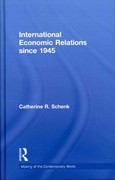Question
Lets discuss the below Agency theory within industries that I have worked in changed as the goals of the companies changed. I have worked as
Lets discuss the below Agency theory within industries that I have worked in changed as the goals of the companies changed. I have worked as a manager within Starbucks Coffee Company and was a salaried employee whose primary duty was to operate and manage a store. I was responsible for upholding the brand and driving sales goals and profitability for the region. Because Starbucks' main offices reside in Seattle, meaning the owners of the firm were distantly located and relied on regional and district managers to act as checks and balances for the individual store managers. As referenced in the book, Starbucks handled managerial incentives by rewarding each level of management bonuses paid out on a quarterly basis that was based on the overall sales growth of the stores. Each level f management was rewarded for the growth of the district or region. This has been the primary strategy for Starbucks, but they also employed special bonus incentives during 2020 and the Covid-19 pandemic, where they further incentives managers to keep stores open by paying them extra for staying open. This system of managerial compensation has proven effective amongst other incentives and culture-related aspects of Starbucks that seek to also provide meaning and purpose around the work that managers do daily.
Though traditional pay incentives have been employed effectively for decades (Bryson & Freeman, 2016), recent studies have shown that profit sharing as a model has become increasingly popular as businesses seek to provide their employees with not only pay incentives but also the aspect of partial ownership of the business's prosperity. This has been for the most part only accessible to the primary stakeholders of the business and as job roles continue to focus on group working environments research has shown that profit sharing continues to be a popular choice among businesses (Bryson & Freeman, 2016).
What are ways that business owners also incentives managers that do not relate directly to pay compensation?
Baye, M. & Prince, J. (2017).Managerial Economics and Business Strategy(9e), McGraw-Hill Publishing. New York, NY.
Bryson, A., & Freeman, R. (2016, December 13). Profit sharing boosts employee productivity and satisfaction. Harvard Business Review. Retrieved April 6, 2023, from https://hbr.org/2016/12/profit-sharing-boosts-employee-productivity-and-satisfaction
Step by Step Solution
There are 3 Steps involved in it
Step: 1

Get Instant Access to Expert-Tailored Solutions
See step-by-step solutions with expert insights and AI powered tools for academic success
Step: 2

Step: 3

Ace Your Homework with AI
Get the answers you need in no time with our AI-driven, step-by-step assistance
Get Started


